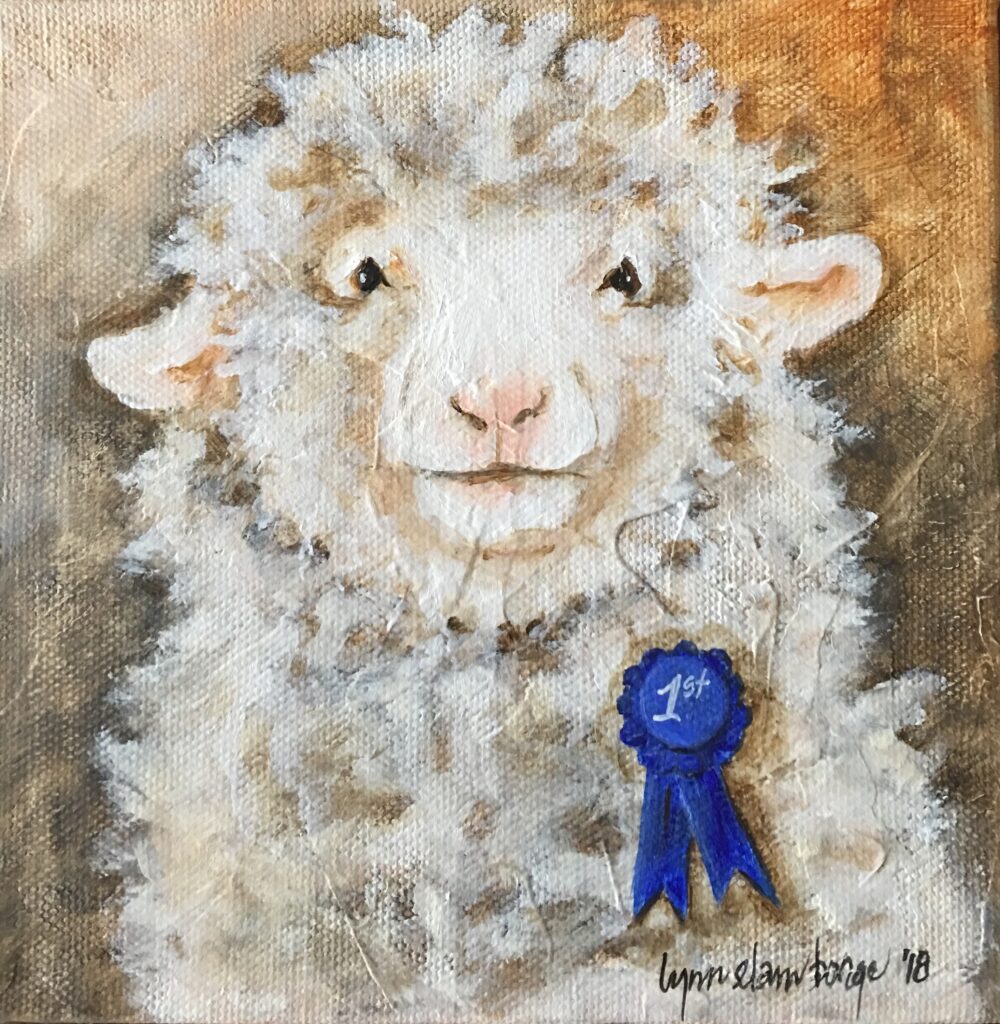
This Sunday’s readings are all about selecting, raising and protecting prize-winning sheep. It’s both an art and a science. Protection is key, because sheep are easily lost or stolen. So why not just keep sheep in their pens, away from the outside world? Because they need exercise if they’re to be strong enough for judgment.
This advice doesn’t come from the Bible, but from The Ohio State University. In an online article on how to show a marketable lamb at the Ohio State Fair, the author notes that it’s necessary to exercise lambs. Jesus knew this, which is why, in Sunday’s gospel, he offers his own tutorial about leading sheep out of their pen safely.
“The shepherd calls his own sheep by name and leads them out. When he has driven out all his own, he walks ahead of them, and the sheep follow him, because they recognize his voice. But they will not follow a stranger; they will run away from him, because they do not recognize the voice of strangers.”
Well, sometimes they do. If we are the sheep in Jesus’ gospel analogy (Jn 10:1-10), the world is our sheepfold—because all people are called for a final showing. But if we don’t keep our eyes on the Good shepherd, we tend to get lost by following bad ones who sneak in via unauthorized entrances. In this high-tech world, there are millions of cyber access points to our sheepfold (how do you think I found that article about raising prize sheep?)
The article adds, like St. Peter does in Sunday’s second reading (1 Pt 2:20b-25), that the discipline of consistency is key. Exercise isn’t easy and can be painful if not part of a daily regimen.
“Work up to walking for an hour,” the article advises. “At big shows, classes can take up to an hour to judge. So preparing your sheep to stand and walk for that long is important in showmanship. Consistency is the key. … Drastic changes in the management program will do more harm than good.”
That’s why, as St. Peter adds, patience is a virtue. In that, our shepherd leads the way.
“If you are patient when you suffer for doing what is good, this is a grace before God,” he promises. “For to this you have been called, because Christ also suffered for you, leaving you an example that you should follow in his footsteps.”
He’s leading us to the Big Show, but this is where the sheep analogy can fall apart. We won’t be judged solely on our own body—the one we’ve so carefully nursed to showy health. Our Holy Spirit drives us to seek and share the judge’s pleasure with others. The Good Shepherd can only take us so far. That Spirit is the one who gets us the rest of the way. Our spirit is made holy by our free will’s decision to imitate the Good Shepherd in bringing as many souls with us to answer the Judge’s call—including those in the families we’ve raised according to the Shepherd’s standards. That requires the discipline of regularly learning from our mistakes. In other words, repentance.
“Repent and be baptized, every one of you, in the name of Jesus Christ for the forgiveness of your sins and you will receive the gift of the Holy Spirit,” St. Peter concludes in Sunday’s reading from Acts (Acts 2:14a, 36-41). “For the promise is made to you and to your children and to all those far off, whomever the Lord our God will call.”
The world is our sheepfold. Many are called out of it. We are called to ensure that many are moved by the discipline of our own example.
–Tom Andel